Rules for the Normalization of the Wholesale Electricity Market (WEM)

On October 21, 2025, the Secretary of Energy published the Resolution 400/2025, approving the “Rules for the Normalization of the Wholesale Electricity Market and its Progressive Adaptation” (the “Rules”).
This milestone represents the first comprehensive regulatory update for the electricity market in nearly 25 years, aiming to restore competitive operation, reactivate the Corporate PPA Market (“MAT”), liberalize fuel management for thermal generation, and enable electricity exchanges by private parties with neighboring countries. This regulatory framework is aligned with the purpose of Law 24,065, Decree 450/2025 (see our comments on this regulation here) based on the mandate contained in Article 162 of Law 27,742 “Foundations Law” (see our comments here), considering the Resolution 21/25 of the Secretary of Energy (see our comments here) and the guidelines released by Compañía Administradora del Mercado Mayorista Eléctrico S.A. (“CAMMESA”) on January 29, 2025 (see our comments here).
The Rules aim to ensure the operational continuity and growth of the electricity system, as well as to establish: (i) a price signal system for electricity demand and (ii) a compensation system for electricity supply based on marginal costs, to enable the contracting of energy and capacity in the MAT.
Below, we detail the most relevant aspects of the Rules:
1. Demand Segmentation and Assigned Generation
1.1. Demand Segmentation
The Rules separate demand into three main categories:
- Residential Demand: Receives first priority for Assigned Generation -as defined below- and is covered by regulated seasonal prices.
- Non-Residential Demand: Includes the demand not categorized as Large Users of Distributors (GUDI) or as Residential Demand and it receives second priority for Assigned Generation; if Assigned Generation is insufficient, distributors must procure its supply in the spot market or through MAT contracts.
1.2. Assigned Generation
Assigned Generation includes:
- Thermal and renewable plants under WEM contracts.
- National hydroelectric plants (excluding provincial hydro).
- Binational hydroelectric (Yacyretá, Salto Grande).
- Nuclear plants (NASA).
- Centralized imports managed by CAMMESA.
The compensation for Assigned Generation follows contract terms until expiry or its fixed in accordance with the rules that the Secretary of Energy issues. After expiration of concessions or contracts, generators may commercialize their energy in the spot market and MAT.
Distributors must cover at least 75% of their demand through MAT contracts in the medium and long term, reducing exposure to spot price volatility.
2. Fuel Management
2.1. Transition and Obligations
- Transition until 2029: Full self-management of fuels by generators becomes mandatory from January 2029.
- Natural has Management: During the transition, gas supply is prioritized under the Plan Gas (until 2028), with CAMMESA as last-resort generators. Generators may choose for self-managed gas or use CAMMESA’s agreements.
- Alternative Fuels: Generators are responsible for sourcing and costs, based on CAMMESA’s published reference prices.
2.2. Cost Recovery and Compliance
- Generators with self-management fuel may freely declare their Variable Cost Production (CVP) for each fuel, on a fortnightly basis.
- Generators without self-management of fuel (those relying on CAMMESA for fuel) cannot participate in the MAT and do not receive marginal rents. They will only receive a remuneration for capacity when required for dispatch, and a capacity availability payment when the equipment is available but not dispatched.
3. Marginal Cost and Spot Market
3.1. Marginal Hourly Cost (CMgh)
CMgh is calculated as a mix of the operated marginal cost (CMOh) and the cost of the next MW to be dispatched (CMph), gradually shifting to include more market signals by 2028 (80% operated, 20% next MW). The cost of unsupplied energy (CENS) is also considered and updated based on system restrictions.
3.2. Spot Generation Remuneration
- Thermal: Paid based on declared CVP plus an adapted marginal rent (RMA), with a transition factor (FRA) increasing from 0.15 to 0.35 by 2028. For new plants (commercial operation date as of 2025) the FRA shall be equivalent to 1 and RMA shall be full; and for existing plants (commercial operation date prior to 2025) the RMA shall have minimum values (equivalent to 2 for CVP < 60 and equivalent to 7 for CVP ≥ 60).
- Renewable: Existing plants (commercial operation date prior to 2025) shall receive a minimum RMA of USD 32/MWh; and new plants (commercial operation date as of 2025) shall have no minimum or maximum RMA and a FRA equivalent to 1.
- Hydro: Existing plants (commercial operation date prior to 2025) shall receive a minimum RMA of USD 22/MWh; and new plants (commercial operation date as of 2025) shall have no minimum or maximum RMA and a FRA equivalent to 1.
- Capacity Availability Payments: USD 12/MW with technology-specific multipliers.
Penalties for non-compliance with fuel declarations (Deliver or Pay, DOP) are set at 70% of the declared value for the volume not supplied, with exceptions for justified causes.
3.3. Spot Demand Pricing
Spot prices for energy and capacity are calculated by time bands (peak, off-peak, valley) and must at least cover the average system cost. A Factor of Marginal Adapted Spot (FSA) is introduced to gradually increase the weight of marginal cost signals in spot prices.
3.4. Seasonal Prices
Seasonal prices for residential and non-residential demand are calculated based on assigned generation costs and spot market costs for any shortfall. Large users (GUDI) are assigned with spot market costs and can contract directly or through distributors.
4. MAT
4.1. MAT Energy
A MAT Energy will be implemented to enable the contracting of variable WEM costs associated with the operation and maintenance of fuels and renewable energies through contracts for the supply of energy, both for distributors and large users. Existing thermal and hydro generation (commercial operation date prior to 2025) will be able to contract up to 20% of its production with large users, rest with distributors; as of 2030 they will be able to contract with any demand; new plants have no restrictions.
4.2. MAT Capacity
MAT Capacity allows contracting firm capacity, with coverage evaluated hourly. Hydro generation shall cover its contracts with 70% of the available hourly capacity; renewables cannot offer capacity contracts; nuclear generation can participate under specific conditions set by the Secretary of Energy; and storage facilities shall cover its contracts with the actual hourly storage capacity available when is equal to or greater than 4 hours.
4.3. Contract Terms and Functioning
Contracts are flexible, with priorities and allocation defined by the parties. Generators and demand must report contract coverage and priorities each season. Settlement formulas ensure that contracted energy and capacity on the MAT are properly deducted from spot market settlements.
5. Reliability Services and Market Opening
5.1. Reliability Reserve (Base and Additional)
- Base Reserve: USD 1,000/MW/month for existing thermal generation (prior to 2025). This charge shall be covered by all market demand. Excludes plants under active supply contracts, ENARSA, and certain cycle combined plants.
- Additional Reserve: USD 9,000/MW/month for new hydro/thermal/storage (as of 2025), for up to 10 years, subject to approval and system needs.
5.2. Market Opening
The Rules enable private energy imports/exports and assign local dispatch costs to the relevant district. These agreements shall be subject to the economic operation and minimum cost of the WEM.
6. Additional Provisions
- Currency Reference: All payments and contracts used the official wholesale USD exchange rate.
- Service and Transport Charges: Costs are allocated proportionally to monthly energy demand.
- Short-Term Reserve Services: The system will evaluate and adapt reserve services as needed for operational reliability.
- Jurisdictional Cost Assignment: Costs for local forced dispatch are assigned to the relevant district.
- Expansion and Planning: CAMMESA must evaluate and recommend new energy and capacity additions annually. The Secretary of Energy may organize tenders for medium-term supply, with payment guarantees for distributors under certain conditions.
***
For further information, please contact Nicolás Eliaschev, Javier Constanzó, Daiana Perrone, Milagros Piñeiro, Macarena Becerra, María Paz Albar Díaz, Rocío Valdez, Victoria Barrueco, Sol Villegas Leiva, and/or Manuel Crespi.
IEB Construcciones S.A. Makes Follow-on
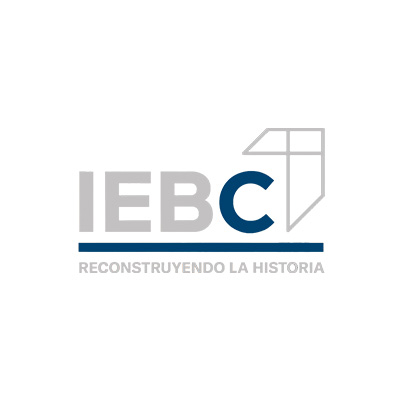



Legal advisors in the offering of 10,000,000 new Class B shares of IEB Construcciones S.A., under the Automatic Authorization Regime for Public Offering of Shares due to its Medium Impact of the Comisión Nacional de Valores.
Invertir en Bolsa S.A. acted as Organizer and Placement Agent, while Bull Market Brokers S.A. and Macro Securities S.A.U. acted as Placement Agents for the New Shares.
Issuance of Public Debt Securities ER 2025 Series II Additional by the Province of Entre Ríos for a total nominal value of ARS 42,959,939,856


Legal advisors to the transaction, assisting the Province of Entre Ríos (the “Province”) and Nuevo Banco de Entre Ríos S.A., in its capacity as organizer and lead placement agent in the issuance of the ER 2025 Series II Additional Public Debt Securities (the “Debt Securities”). The Debt Securities were issued on October 17, 2025, and are secured by resources from the Federal Tax Sharing Regime, assigned to a maximum allocation percentage of 25%. The Debt Securities Series II Additional were issued for a nominal value of ARS 42,959,939,856, at a variable interest rate equivalent to the TAMAR rate plus a 5.50% margin, maturing on January 17, 2027.
Inversora Juramento S.A.’s Series VI Notes for US$ 30,000,000


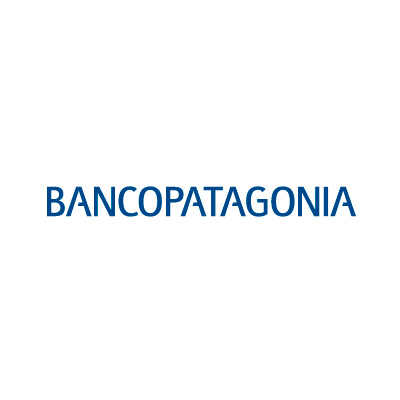





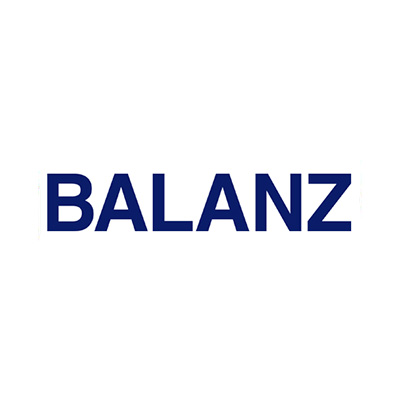

Legal counsel in the issuance of Inversora Juramento S.A.’s 9.00% Series VI Notes for US$ 30,000,000, due October 3, 2027. The Series VI Notes were issued on October 3, 2025 under the Global Notes Program for an amount of up to US$100,000,000.
Macro Securities S.A.U. acted as arranger, settlement agent and placement agent, and Banco Patagonia S.A., Banco Supervielle S.A., Banco de la Provincia de Buenos Aires, Invertironline S.A.U., Banco CMF S.A., Invertir en Bolsa S.A., Balanz Capital Valores S.A.U. and Banco de Galicia y Buenos Aires S.A. acted as placement agents.
Legal Advice on the Acquisition of Celulosa Argentina S.A.
 We advised Esteban Antonio Nofal on the acquisition of Celulosa Argentina S.A. (“Celulosa”), one of Argentina’s leading producers of printing and writing paper, tissue paper, and eucalyptus pulp. Celulosa’s shares have been listed on the Buenos Aires Stock Exchange since 1937.
We advised Esteban Antonio Nofal on the acquisition of Celulosa Argentina S.A. (“Celulosa”), one of Argentina’s leading producers of printing and writing paper, tissue paper, and eucalyptus pulp. Celulosa’s shares have been listed on the Buenos Aires Stock Exchange since 1937.
The transaction involved the acquisition of: (a) 100% of the capital stock and voting rights of Tapebicua LLC, the indirect controlling entity of 41% of Celulosa’s capital stock and voting rights; and (b) all of the direct shares in Celulosa held by the selling shareholders—Douglas Albrecht, Juan Collado, and Juan Manuel Urtubey—representing 4.48% of Celulosa’s capital stock and voting rights.
Closing of the transaction took place on September 19, 2025, the date on which Esteban Antonio Nofal became the indirect controlling shareholder of Celulosa. The acquisition took place just days after Celulosa filed for reorganization proceedings before the courts of San Lorenzo, Province of Santa Fe, as part of a process to restructure approximately US$128 million in outstanding debt.
Our Firm acted as legal counsel to the buyer, with a team led by partners Julian Razumny, Federico Salim, Marcelo Tavarone, and Francisco Molina Portela, along with associates Esteban Bujan, Martín Scapini, Agostina Jordan, Paula Cerizola, Consuelo Ortiz, and Juan Cruz Carenzo.
US$250,000,000 Loan Granted by International Finance Corporation (IFC) to the Province of Córdoba

Legal advisors to the Province of Córdoba in a US$250,000,000 cross-border loan granted by the International Finance Corporation (IFC). The loan is guaranteed by a security trust agreement funded with revenues arising from the Federal Tax Revenue-Sharing Regime (“Régimen de Coparticipación Federal de Impuestos”), under which the Province acts as trustor, Banco Comafi S.A. as trustee, and IFC as beneficiary.
J&F Group debuts in Argentina’s O&G Sector with Pluspetrol Acquisition

Legal Counsel to Flxs OGE S.A. (“Fluxus”), a member of the J&F Group, in the acquisition of two oil and gas concessions in the province of Neuquén from Pluspetrol S.A. The deal closed on August 29, 2025, after receiving approval from the province of Neuquén to transfer concessions “CNQ-12 Centenario – Blocks I and II” and unconventional block “CNQ-12 Centenario – Central Block.”
This transaction marks the formal entry of Fluxus’s activities in the Argentine oil and gas sector, strengthening its operations following recent acquisitions in Bolivia. The J&F Group is the largest business conglomerate in Brazil, parent company of giants such as JBS and Eldorado Brasil, with operations in more than 22 countries and over 290,000 employees worldwide.
Our Firm acted as legal advisor to Fluxus, through the team led by partner Juan Pablo Bove and associates Paula Cerizola, Milagros Piñeiro, Manuela Cané, Rocío Valdez, and Sofía Elhorriburu.
Legal Counsel to Banco CMF S.A. in the Issuance of Class 19 Notes for US$ 21,795,000

Legal counsel to Banco CMF S.A. in the issuance of Class 19 Notes, denominated, subscribed, and payable in U.S. Dollars in Argentina, at an interest rate of 6.50% maturing on August 29, 2026, for a total amount of US$ 21,795,000 (the “Notes”), under the Global Notes Program for an amount of up to US$100,000,000 (or its equivalent in other currencies or units of measure or value).
Legal Advice on the Restructuring of the Financial and Commercial Indebtedness of Petrolera Aconcagua Energía S.A.
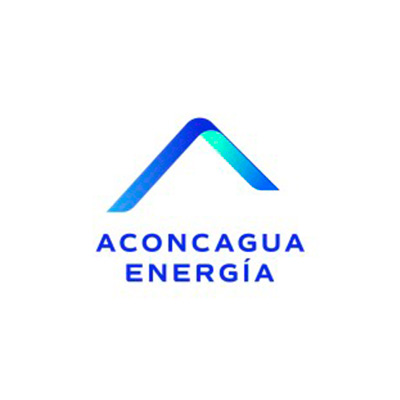
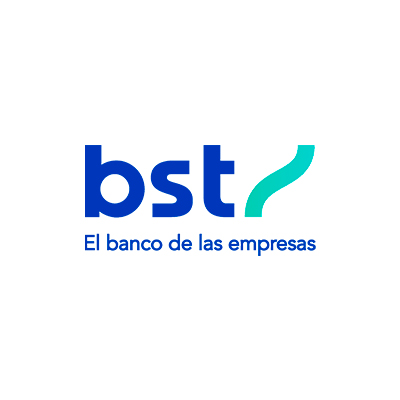
Counsel to Petrolera Aconcagua Energía S.A. in the restructuring of its financial indebtedness for an approximate amount of US$220 million through (i) a tender offer of 14 outstanding notes (obligaciones negociables) for an aggregate principal amount of US$180 million, (ii) a listed promissory notes (pagarés bursátiles) tender offer in exchange for notes for an aggregate principal amount of US$3 million, and (iii) the renegotiation of bank loans with several financial entities for an aggregate principal amount of approximately US$ 10 million.
The 6 newly issued step-up notes will mature in 2030 and 2032 and are denominated in Pesos and US Dollars, as applicable. Both the new notes and the restructured financial loans are guaranteed on a pro rata basis by a trust agreement for the assignment of funds under an oil sale contract to be entered into between PAESA and Trafigura Argentina S.A.
As a result of the successful restructuring, Tango Energy S.A.U, a company co-controlled by Vista Energy S.A.B and AR Energy Resources S.A. (an affiliate of Trafigura Argentina S.A.), announced its participation as controlling shareholder by acquiring 93% of PAESA´s capital stock from its current shareholders.
The transaction was characterized by an extremely tight schedule and sophisticated negotiations with a wide variety of counterparties: bond and promissory notes holders and financial entities (all sharing the same guarantee), as well as with the future shareholders and commercial creditors.
Valo Columbus S.A. acted as financial advisor to the overall transaction, and Banco de Servicios y Transacciones S.A.U. acted as placement agent for the promissory notes tender offer, administrative agent under the restructured financial loans and as trustee under the guarantee trust agreement.
Legal Advisors in the Issuance of Class I and Class II Notes by Banco de la Provincia de Córdoba S.A.
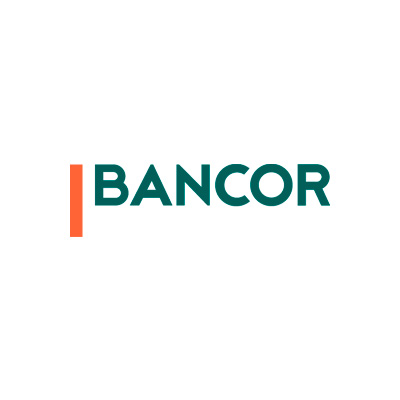

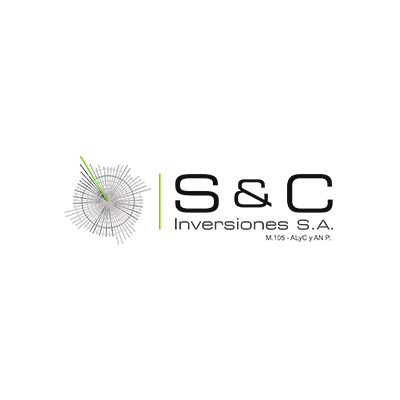
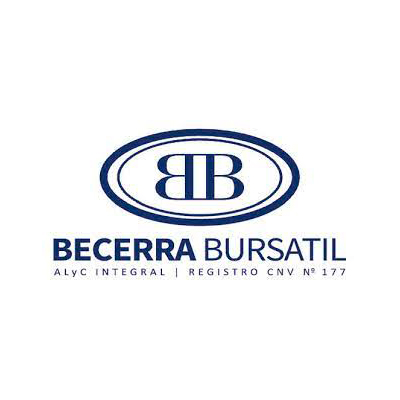

Legal advisors to Banco de la Provincia de Córdoba S.A. and the Placement Agents in the issuance of Class I simple notes for principal amount of AR$26,094,261,589, denominated, subscribed for, and payable in Pesos, bearing a variable annual nominal interest rate equivalent to TAMAR plus 3.00%, maturing on August 22, 2026; and the issuance of Class II simple notes for principal amount of US$13,294,312, denominated, subscribed for, and payable in U.S Dollars, maturing on August 22, 2026, under its Global Program for the Issuance of Simple Notes (non-convertible into shares) for up to US$ 100,000,000 (or its equivalent in other currencies or units of value).
Banco de la Provincia de Córdoba S.A. acted as Issuer, Arranger, Lead Placement Agent and Settlement Agent of the Notes. Meanwhile, Petrini Valores S.A., S&C Inversiones S.A., Becerra Bursátil S.A. and Dracma Investments S.A. acted as Placement Agents.



